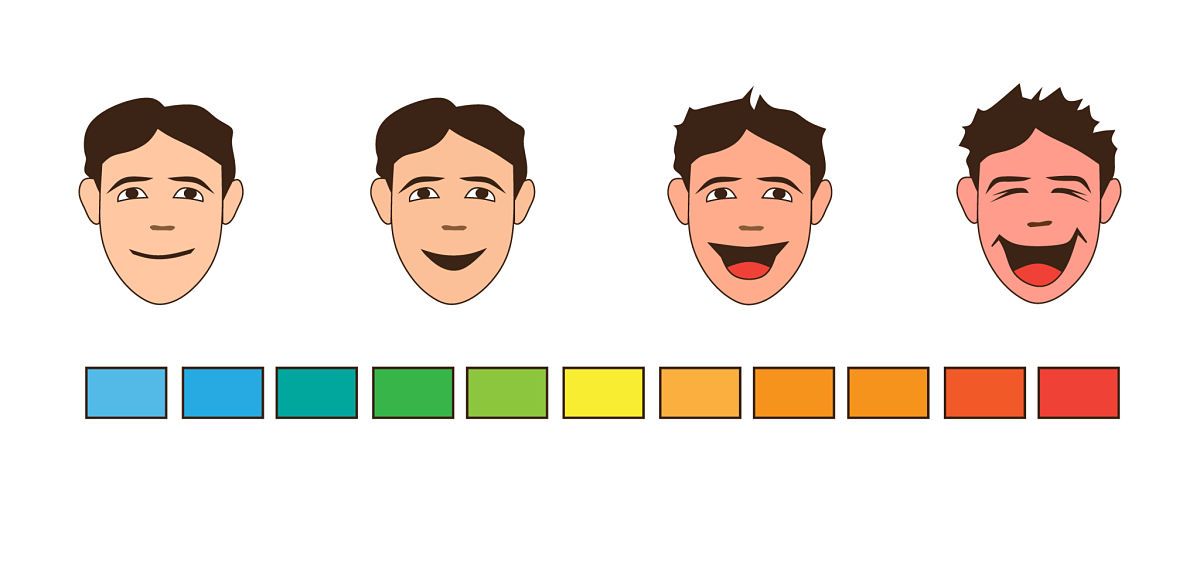
Image credit: Natalie Pepper/ Shutterstock
What makes us laugh? It's serious research...
More complex jokes tend to be funnier but only up to a point, Oxford researchers have found. Jokes that are too complicated tend to lose the audience.
Since the earliest times, laughter and humour have performed important functions in human interaction. They help to expedite courtship, improve conversational flow, synchronize emotional states and enhance social bonding. Jokes, a structured form of humour, give us control over laughter and are therefore a way to elicit these positive effects intentionally. In order to comprehend why some jokes are perceived as funny and others are not, Robin Dunbar and colleagues at Oxford University investigated the cognitive mechanism underlying laughter and humour. The research is published in Springer’s journal Human Nature.
The ability to fully understand other people’s often unspoken intentions is called mentalising, and involves different levels of so-called intentionality. For example, an adult can comprehend up to five such levels of intentionality before losing the plot of a too-complex story. Conversations that share facts normally involve only three such levels. Greater brain power is needed when people chat about the social behaviour of others, because it requires them to think and rethink themselves into the shoes of others.
The task of comics is to elicit laughs as directly and as fast as possible. They generally do this most effectively when ensuring they keep within the mental competence of the typical audience member.
Professor Robin Dunbar, Department of Experimental Psychology
The best jokes are thought to build on a set of expectations and have a punchline to update the knowledge of the listener in an unexpected way. Expectations that involve the thoughts or intentions of people other than the joke-teller or the audience, for example the characters in the joke, are harder to pin down. Our natural ability to handle only a limited number of mindstates comes into play.
In order to shed light on how our mental ability limits what we find funny, the researchers analysed the reaction of 55 undergraduates from the London School of Economics to 65 jokes from an online compilation claiming to be the 101 funniest jokes of all time. The collection mostly consisted of jokes from successful stand-up comedians. Some jokes in the compilation were mere one-liners, while others were longer and more complex. A third of the jokes were factual and contained reasonably undemanding observations of idiosyncrasies in the world. The rest involved the mindstates of third parties. The jokes were rated on a scale from one (not at all funny) to four (very funny).
The research team found that the funniest jokes are those that involve two characters and up to five back-and-forth levels of intentionality between the comedian and the audience. People easily lose the plot when jokes are more complex than that. The findings do not suggest that humour is defined by how cleverly a joke is constructed, but rather that there is a limit to how complex its contents can be to still be considered funny. According to Prof Dunbar, increasing the mentalising complexity of the joke improves the perceived quality, but only up to a certain point: stand-up comedians cannot afford to tell intricate jokes that leave their audience feeling as if they've missed the punchline.
'The task of professional comics is to elicit laughs as directly and as fast as possible. They generally do this most effectively when ensuring that they keep within the mental competence of the typical audience member,' says Prof Dunbar. 'If they exceed these limits, the joke will not be perceived as funny.'
It is likely that everyday conversational jokes do not involve as many intentional levels as those that have been carefully constructed by professional comedians. Further research needs to be conducted in this area. However, Prof Dunbar’s findings shed some light on the mechanics of language-based humour and therefore on the workings of our mind.
The paper, The Complexity of Jokes Is Limited by Cognitive Constraints on Mentalizing is published in the journal Human Nature (DOI: 10.1007/s12110-015-9251-6).
 Existing hospital analysers offer a low-cost method to screen for fake vaccines
Existing hospital analysers offer a low-cost method to screen for fake vaccines
 Statins do not cause the majority of side effects listed in package leaflets
Statins do not cause the majority of side effects listed in package leaflets